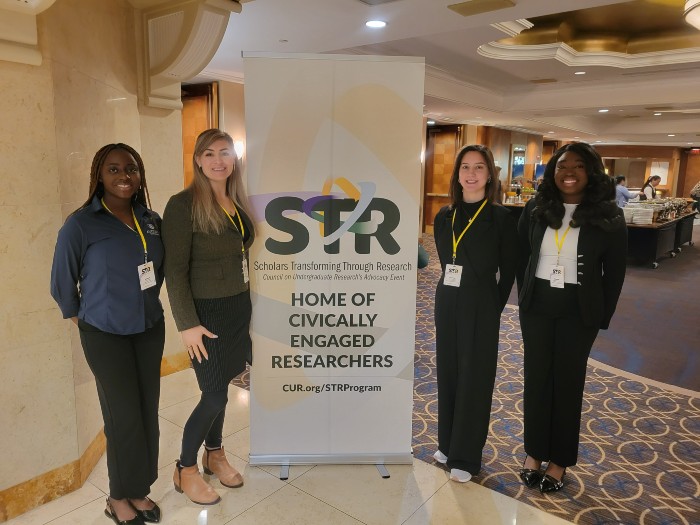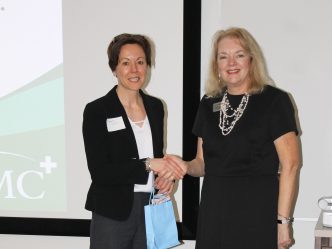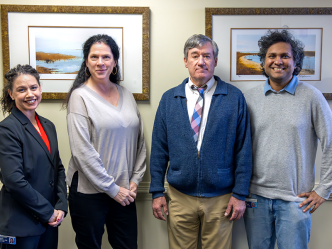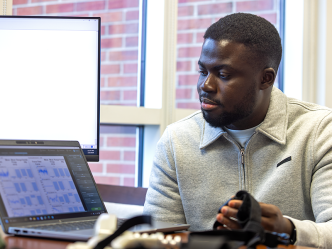Empowering and encouraging.
These were two words that came up often from an Augusta University’s undergraduate research team that recently participated in the Council on Undergraduate Research’s Scholars Transforming Through Research program, or STR.
The STR program is designed to help faculty and students learn how to advocate for research. The students developed their research in the summer of 2024 through AU’s Summer Scholars Program. In the fall, they used what they learned to compete and win the opportunity to engage in several months of virtual training workshops that ended with a visit to Washington, D.C., where they put their advocacy skills in motion on behalf of their own research.
The multi-disciplinary team for the Geriatric Assessment, Intervention, and Technologies Laboratory is led by Deborah Jehu, PhD, an assistant professor in the Department of Community and Behavioral Health Sciences in AU’s School of Public Health, and includes students Antinett Ampiah, from the College of Education and Human Development; Charlotte Downs, from the College of Nursing; and Elizabeth Nelson-Twakor, an Honors Program student from the College of Science and Mathematics.

“I am incredibly proud of the accomplishments these students have made under the mentorship of Dr. Jehu,” said Quentin Davis, PhD, director of the Center for Undergraduate Research and Scholarship. “To represent the university in the nation’s capital, to learn about advocacy for the betterment of society and translating their research findings publicly is an opportunity that will stay with them forever.”
The STR Program, a national application-based advocacy professional development opportunity, began last November with monthly training sessions for teams to participate in. Training topics included building relationships with policymakers, op-ed writing and policy brief writing.
During their time in D.C., the program arranged for the team to meet with staff members from the offices of three Georgia elected officials – Rep. Rick Allen, Sen. Raphael Warnock and Sen. Jon Ossoff – to share more about their research focused on fall prevention in older adults. Jehu said the staff they met with were quite engaged and curious about their research.
“They were really interested in hearing from us as constituents about scaling up exercise interventions to reduce falls among older adults,” said Jehu. “They all said that the students did a wonderful job with their pitch.”
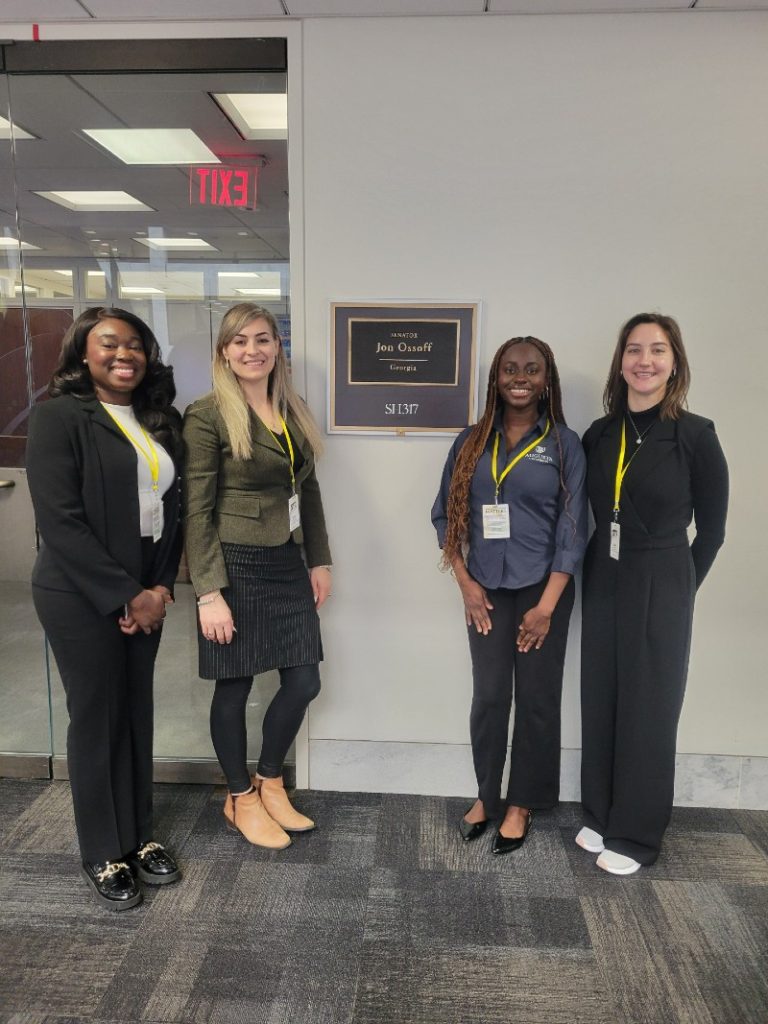
The team worked with Margie Miller, vice president of AU’s Office of Government Relations, and Monty Philpot, director of Federal Relations, in preparation for their meetings with the representatives to ensure their message was refined and tailored.
“Learning how to become an effective advocate is a skill that can be applied to almost any situation,” Philpot said. “I’m proud of these student researchers for learning how to explain the purpose and impact of their research. Translating the value of research can be a challenge but must be clearly and effectively communicated in order to build support. This experience will undoubtedly serve them well as they advance in their careers.”
Ampiah, Downs and Nelson-Twakor said the experience of working with Jehu and the GAIT Lab shifted their views of research, and they enjoyed seeing the different dimensions of what it entails.
“This program helped me disseminate research to multiple audiences,” Ampiah said.
The STR program provided training and contact information for legislators and civic organizations across the country who are working on aging and fall prevention-related initiatives so the students can continue to participate in outreach and conversations regarding their research. The team said they’re looking forward to conducting additional outreach and would like to bridge the gap between research and practice. The team continues to stay in touch with the STR Program in hopes of writing a policy brief to share more broadly.
“This was a unique opportunity for the students because they completed the research during AU’s Summer Scholars Program last summer, and now they are taking their research and explaining it to legislators,” said Jehu.
Ampiah, Downs and Nelson-Twakor agreed that this experience was empowering for them and highly recommend participation in both AU Summer Scholars and STR programs to other undergraduate researchers.
“We’re just students in college, but it was encouraging to see that we do matter in our participation and involvement in this research,” said Nelson-Twakor. “No matter how big or small it might be, I think everybody should be able to participate in something like this.”
As future health care workers, each of the students hopes to utilize what they learned in this program to advocate for their future patients.
“By being a part of this program, I learned how to advocate for my patients on a legislative level. When in the hospital, I am advocating for my patients daily to doctors and other health care providers, but that is on a case-by-case basis,” said Downs, an aspiring Intensive Care Unit nurse. “With the knowledge that this program has given me to advocate legislatively, I can advocate for my patients as a whole for policies and legislation that can improve the care they are given.”
 Augusta University
Augusta University
